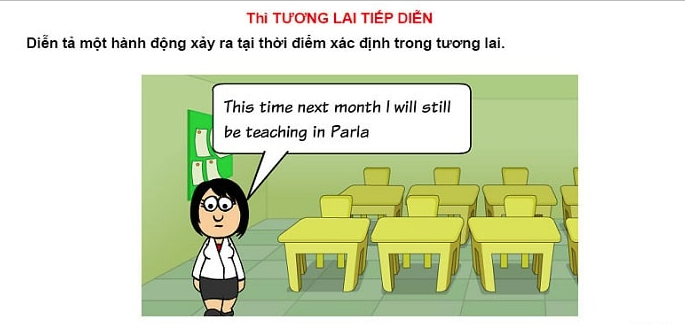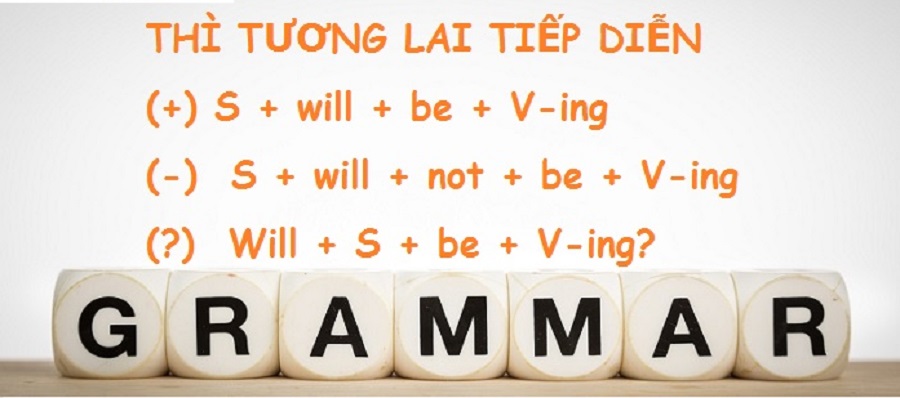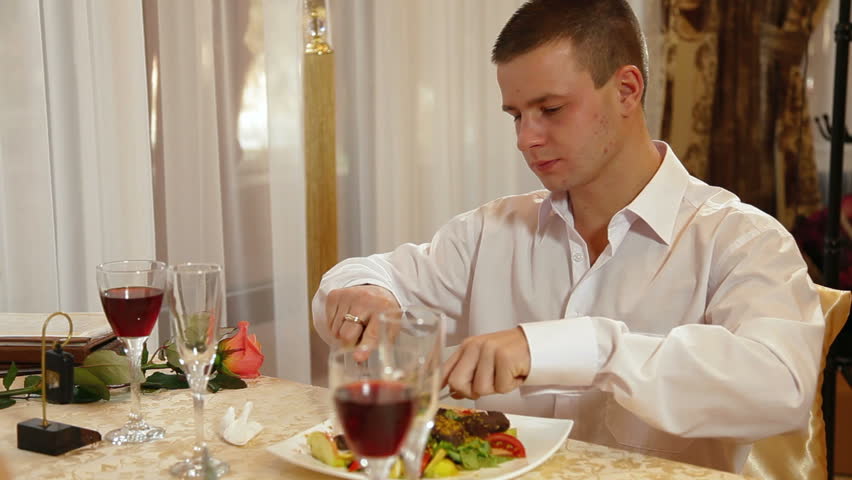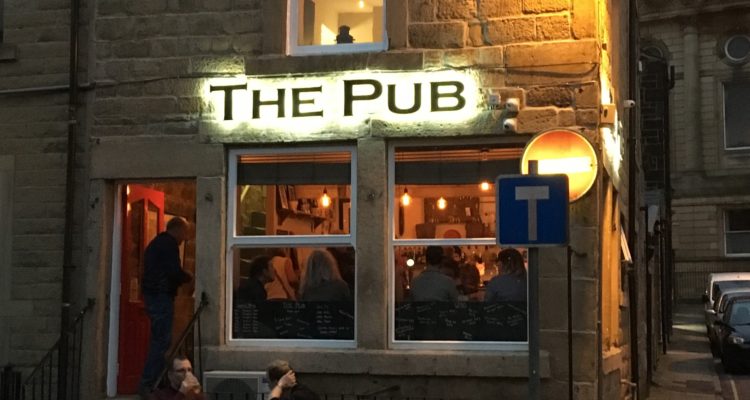The future continues
Join EnglishTopVN to immediately learn important knowledge about FUTURE CONTINUOUS TENSE with formulas, signs, and exercises with detailed answers. Besides, you should practice future continuous tense to consolidate knowledge applicable to all tests.
1. Concepts
Future Continuous Tense used to talk about an action that is taking place at a specific time in the future.
For example:
➢ We will be climbing on the mountain at this time next Saturday.

Example of future continuous tense
2. Formula

In there:
- S (subject): Subject
- Will: Auxiliary verb
- Be: Verb "to be" infinitive
- V-ing: Verbs add "ing" ending
2.1. Affirmative sentences
S + will + be + V-ing
✎ NOTE: "be" always comes after "will".
For example:
- I will be working from tomorrow.
- I will be eating bread from noon tomorrow.
2.2. Negative sentence
S + will + not + be + V-ing
✎ NOTE: For negative sentences, we just need to add "not" right after the auxiliary verb "will" and we can write "will not" as "won't".
For example:
- I won't be working tomorrow. tomorrow.
- She won't be playing games tomorrow.
2.3. Question
Will + S + be + V-ing ?
Reply:
- Yes, S + will
- No, S + won't
✎ NOTE:
- Interrogative sentences invert the auxiliary verb "will" to the beginning.
- Questions using "what, how, when, why,..." have the form: Wh-word + will + S + be + V-ing ? (For example: What will you be doing when I arrive tomorrow? => What will you do when I come tomorrow?)
For example:
- Will you be studying next Tuesday?
- Will he be playing games this weekend?
3. How to use
➣ Describes an action or event that will be taking place at a specific time in the future.
For example: Tonight at 7 PM, I am going to be eating dinner.
At 7 o'clock tonight, I will be having dinner.

Tonight at 7 PM, I am going to be eating dinner
➣ Describes an action or event that is happening when another action or event intervenes in the future
For example: He will be waiting for her when her plane arrives tonight.
He will be waiting for her when her plane lands.

He will be waiting for her when her plane arrives tonight.
➣ Describes an action that will take place and continue continuously over a period of time in the future
For example: My parents are going to London, so I will be staying with my grandma for the next 2 weeks.
My parents are going to London, so I'll be staying with my grandmother for the next 2 weeks.

My parents are going to London, so I will be staying with my grandma for the next 2 weeks.
➣ Describes an action that will take place as part of a plan or part of a schedule
For example: Next Monday, you will be working in your new job.
Next Monday you will be at your new job.

Next Monday, you will be working in your new job.
➣ Used to politely request/ask about certain information in the future
For example: Will you be bringing your friend to the pub tonight?
Are you going to invite your friends to the pub tonight?

Will you be bringing your friend to the pub tonight?
➣ Combined with “still” to refer to actions that have happened now and are expected to continue in the future.
For example: Tomorrow he will still be suffering from his cold.
Tomorrow he will still be tormented by a cold.

Tomorrowhe will still be suffering from his cold.
➣ Describing parallel actions to describe an atmosphere or scene at a specific time in the future
For example: When I arrive at the party, everybody is going to be celebrating*. Some will be dancing. Others are going to be talking.
When I arrive at the party, everyone will be celebrating. Some people will be dancing. Some others will be chatting with each other.

When I arrive at the party, everybody is going to be celebrating*. Some will be dancing. Others are going to be talking.
✎ NOTE: We can use “be going to” to replace “will” without changing the meaning of the sentence.
4. Identification signs
➣ There are adverbs indicating future time with a definite time:
- At this time/ at this moment + future time: At this time….
- At + specific time + future time: at …..
- At this time tomorrow
For example: We will be going out at this time. I We will go out at this time.
At this time tomorrow I will be going shopping in Singapore.
At 10 a.m tomorrow my mother will be cooking lunch.
5. Note when using
➣ Clauses starting with when, while, before, after, by the time, as soon as, if, unless... do not use the future continuous but use the present continuous.
For example: While I will be finishing my homework, she is going to make dinner. (incorrect)
=> While I am finishing my homework, she is going to make dinner.
➣ The following words are not used in the continuous form in general and the future continuous tense in particular:
- state: be, cost, fit, mean, suit
- possession: belong, have
- senses: feel, hear, see, smell, taste, touch
- feelings: hate, hope, like, love, prefer, regret, want, wish
- brain work: believe, know, think (nghĩ về), understand
For example: Jane will be being at my house when you arrive.(incorrect)
=> Jane will be at my house when you arrive.
➣ Passive form of the future continuous tense
At 8:00 PM tonight, John will be washing the dishes.(active)
=> At 8:00 PM tonight, the dishes will be being washed by John.(passive)

